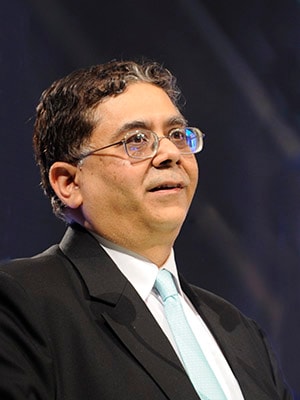
Government must bite the bullet on Vodafone issue - Cyril Shroff
India's top corporate lawyer would like the government to use the upcoming Union Budget to signal a broader economic policy
According to Cyril Shroff, managing partner at Cyril Amarchand Mangaldas, “They (the government) will reinforce a lot of the signals already given.” So expect strong signaling on the fact that India is open for business, and announcements to give a further thrust to signature government initiatives such as Make in India, Digital India, or the Smart Cities programme.
His comments come under the backdrop of waning investor interest in the India story. Foreign investors have adopted a wait and watch approach while foreign portfolio investors have pulled out nearly $2 billion from the Indian stock market in the first two months of 2016, according to data from the Central Depository Services Ltd.
The benchmark Sensex, which briefly scaled past 30,000 in March 2015 has steadily given up its gains. It closed on Friday, 26 February at 23154, down 22 percent from its peak.
Shroff also expects the government to clarify on announcements made in the last 18 months. For instance, Jaitley had announced a reduction in corporate tax rates from 30 percent to 25 percent. Expect a roadmap for the same.
There could also be more clarity on the government’s divestment plan – it has so far failed to achieve its Rs 69,500 crore target for 2015-16. Recapitalizing India’s state owned banks is another area where the Jaitley’s intent and action will be keenly watched.
Lastly, there is the retrospective tax issue that has vexed foreign investors. In February 2012, finance minister Pranab Mukherjee had announced that asset sales in India would be taxed with retrospective effect irrespective of where the entity was owned. “They have to bite the bullet and solve this Vodafone issue because it is disproportionate in terms of the negative mileage,” said Shroff.
In early February Vodafone received a reminder from the Income Tax Department asking them to pay tax owed. The arbitration proceedings with the Indian government have been inconclusive so far. “The problem today is despite the large political mandate people are not ready to take risky political decisions,” said Shroff.






